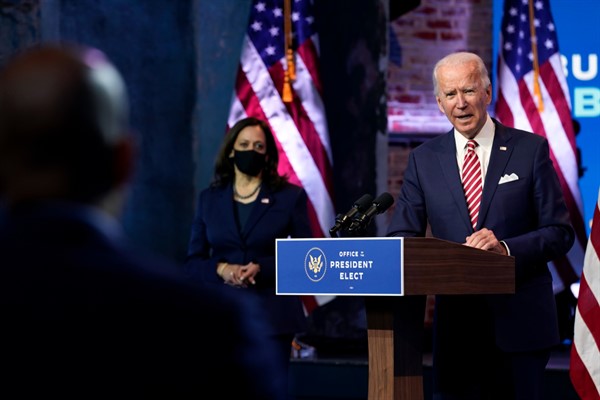Now that world leaders and the D.C. foreign policy establishment have breathed a collective sigh of relief over Joe Biden’s election as U.S. president, things can get back to normal when it comes to preparing for a new administration in Washington. For world leaders, that means scrambling for access and favor, while readying offer sheets of how their governments can be of help to Biden’s team. For the D.C. establishment, that means angling to be part of that team, or else writing lengthy policy proposals that, unlike in 2016, might actually be read by the people who do end up on it.
Before long, of course, foreign governments will go from complaining about an absent America under Donald Trump to once again complaining about an overbearing America under the more conventional Biden. And that Washington establishment will go from proposing policy agendas to criticizing the ones Biden’s team has decided to pursue, while swapping rumors about clashing egos and internal tensions.
Some of those internal tensions could come into view in the coming weeks and months, as Biden’s team takes shape. A tug of war for influence is expected between holdovers from Barack Obama’s presidency who are pushing for restoration, meaning a return to the broad outlines of his White House’s approach; those who advocate for reform, to take into account the significant changes in the global landscape, particularly with regard to China, that have emerged over the past four years; and the progressive wing of the Democratic party that advocates for restraint, as part of a more radical overhaul that embraces a values-driven foreign policy.

